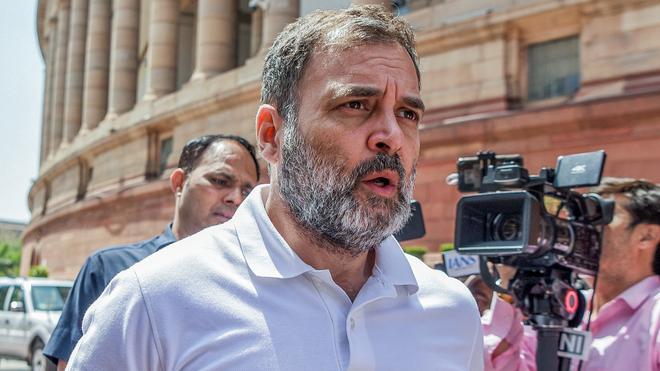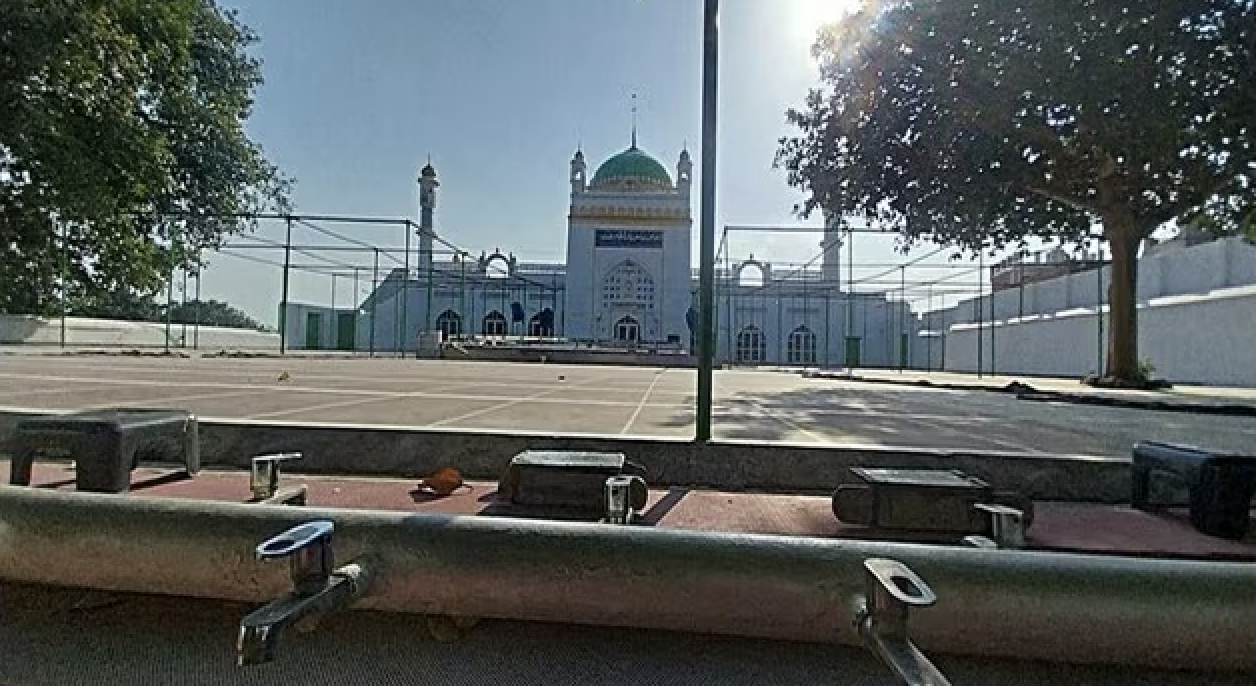By AKANSHA DESHMUKH
Indore and Delhi: “The book was purchased in 2014. And he is sought to be arrested? Are you serious?”
That was the question Chief Justice of India D Y Chandrachud asked advocate Aljo K Joseph, state counsel for Madhya Pradesh, on the state’s dogged pursuit of Inamur Rahman PhD, who 43 days earlier had resigned as principal of the New Government Law College, Indore, over a book in the college library.
On 16 December 2022, the Supreme Court stopped the police from arresting Rahman, 63, with the Chief Justice saying there was no case for arrest. Relief for Rahman came after his pleas for anticipatory bail were rejected by an Indore district court and the Indore High Court.
When the Madhya Pradesh High Court granted Rahman anticipatory bail on 22 December, the same bench of the Supreme Court moved to dispose of the petition believing he faced no threat of arrest. The judges were surprised at a hearing on 23 January 2023 when the State’s lawyer said they would challenge bail.
Chief Justice D Y Chandrachud posed several questions to the State’s counsel.
“He is a college principal. Why are you arresting him?” asked the Chief Justice. “A book is found in the library which is said to have some communal undertones. Therefore he is sought to be arrested?”
The Chief Justice’s concerns about this arrest underscore the harassment that some Muslim academics are experiencing in Madhya Pradesh. The book’s author, principal of the Chameli Devi Institute of Law, Indore, Farhat Khan PhD, 41, has faced the ire of Hindu right-wing groups since 2021.
What began as complaints against the book have grown into allegations by the Akhil Bharatiya Vidyarthi Parishad (ABVP), the youth wing of the ruling Bharatiya Janata Party (BJP), that Muslim faculty are spreading “love-jihad” and religious extremism on campus.
Rahman was forced to resign in December 2022 due to pressure from the ABVP.
In December 2022, the police, pressured by the BJP government of chief minister Shivraj Singh Chouhan, registered criminal cases against three Muslim academics, based on complaints from right-wing Hindu groups. An inquiry committee that was to have been impartial completed its probe within a day on 6 December, basing it entirely on right-wing allegations and without speaking to the academics involved.
The three academics—Rahman, Farhat Khan, and constitutional law professor Mirza Moziz Beg, 41—are accused under eight sections of the Indian Penal Code of 1860.
These are “promoting enmity between different groups on grounds of religion” (section 153-A), “imputations, assertions prejudicial to national integration” (section 153-B), “deliberately intending to outrage religious feelings” (section 295-A), defamation (section 500), “to provoke breach of the peace” (section 504), “statements conducing to public mischief” (section 505), “creating or promoting enmity, hatred, or ill-will between classes” (section 505[2]), and “acts done by several persons in furtherance of common intention” (section 34).
If convicted , they could face up to 16 years in prison. Rahman and Beg are currently under suspension, not allowed to teach. Farhat Khan, facing health issues, is not currently working.
According to Rahman, the case singles out Muslim professors for criminal action.
“I was compelled to tender my resignation from my position amidst mounting pressure, despite no wrongdoing,” said Rahman. “It is my personal belief that these individuals targeted me solely due to my faith, with their disapproval stemming from my position as a principal belonging to the Muslim community.”
Indore-based advocate Abhinav P Dhanodkar, representing Beg and Rahman, said the case against them was “lodged for political reasons”.
“Both were not involved in the publication or the marketing of the book,” said Dhanodkar. “My clients have been unnecessarily dragged into the case.”

Book Censored In 2021
The latest controversy over the book in question, Collective Violence and Criminal Justice System, is not the first raised by right-wing groups.
In 2021, the publisher removed sections of the book’s content following complaints from right-wing Hindu groups. The book discusses theory and law around the theme of collective violence in India, including sectarian strife.
Hitesh Khetrapal of Amar Law Publications and Khetrapal Law House said he “received calls from the Rashtriya Swayamsevak Sangh (RSS), ideological mentor of the BJP, and ABVP workers taking strong objection to the content of the book”. They objected to what they regarded as narratives against the ideological fount of the Hindu right, the Rashtriya Swayamsevak Sangh (RSS) and the Hindu community.
In March 2021, Farhat Khan was forced to provide a written apology addressed to the publisher. Khetrapal said 10 pages of “controversial” content were removed.

All copies of the book in circulation with booksellers were recalled and destroyed. The book was republished with the removed pages omitted.
Bhopal lawyer Wahid Khan, who is not connected to Rahman’s case, expressed his alarm at “attempts at censorship”, which he said emerged “out of intimidation instead of examining the systemic processes”.
“Such actions not only violate academic freedom, but go against freedom of speech. The Constitution’s Article 19(1)(a) guarantees the freedom of speech and expression,” said Wahid Khan. “Critics and writers play a vital role in exposing societal issues, and their work must be safeguarded, not punished.”
“The current trend of censorship by the mob is an alarming development,” said Wahid Khan.

New Complaints & Revived Protests
The ABVP brought the book back to the fore at the New Government Law College in December 2022, in the midst of a cascade of wider complaints against faculty members.
On 1 December, the Indore branch of the ABVP submitted a memorandum to Rahman, then principal, listing grievances against six faculty members—four Muslim and two Hindu.
The grievances included “people from a particular religion” being preferably recruited as faculty; “love-jihad” spreading on campus; Muslim faculty members praising Muslim rulers and criticising Hindu rulers; missed classes on Fridays due to professors taking students to offer Friday prayers in mosques; non-vegetarian food being eaten on campus; a secret WhatsApp group consisting of only Muslim teachers and students; Muslim faculty members spreading “negative thoughts” on the government and Army, among others.
In response the same day, then principal Rahman suspended the six faculty members for five days, and ordered an inquiry by a retired district judge…
This story was originally published in article-14.com. Read the full story here






